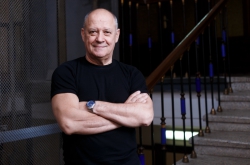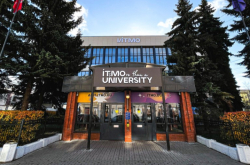The school's key purpose was to teach its participants to establish efficient communication between science and business. In order for scientific centers and enterprises to understand each other, they need technology brokers who will act as mediators. Then again, in order for such specialists to do a good job, they need to know the whole sequence of introducing a product. As it is a very complex process, it usually involves a team of four to five people. In other countries, there are companies whose only focus is on providing technology brokering services. ITMO's School of Technology Brokering brought together experts from Russia and around the world to solve a series of cases in 72 hours.
Since last year, the school has become self-sufficient in its funding, and now offers three "participation packages": "Student" (three days of unique training by the current leaders in technological brokering), "Broker" (three days plus going all the way towards brokering a deal under the guidance of the School’s mentors), and "Company" (aimed at teams representing a particular company).

This year, the participants learned such things as commercialization processes, integral assessment of technologies, innovative entrepreneurship, development of technology and road maps, legal aspects of working with intelligent systems and other skills that are essential for interacting with anyone involved in hi-tech projects.
Over 30 people took part in the school, among whom were representatives of 15 different companies and such educational establishments as Tyumen State Oil and Gas University, Sevastopol National Technical University, and Novosibirsk State Technical University. Other participants work for companies that focus on engineering and commercialization of intellectual property.
We asked the school's participants who came from Russia's regions about why they decided to attend the school and their plans for using the new knowledge they got.
Aysulu Murzabekova, project manager at Gazohim Engineering LLC, Ufa
In my opinion, Russia's technology brokering market is still underdeveloped, and the invited experts spoke about their experience in the adjacent fields. Technically, it is the people that attended the school in the last three years who will be the ones to develop this market.

The event was very well-organized. There's only one thing that I'd like to recommend: it would've been great if the school's theoretical module was designed with regard to the participants' interests and competencies. For instance, they could've conducted a preliminary analysis of their audience. Sure enough, everyone has different background, but you can always find something they have in common. For example, they explained us what patents are and how to work with them. Most of us knew that already, and this half an hour could be spent on some other important subject.
Ilya Anisimov, associate professor and project lead at Tyumen State Oil and Gas University
Such educational programs as ITMO University's School of Technology Brokering help us come up with particular plans for establishing a system for commercializing intellectual property at a university. Unfortunately, even though our university makes use of many methods and approaches, we don't have a developed commercialization mechanism. Truth be told, I first learned of the term "technology brokering" from the program’s description. Before that, I didn't even know of its existence. Now I understand that there has to be some mediator between scientists and the industry, some department that can bring them together and establish the necessary communication.

The school also allowed me to rearrange my knowledge. In future, this experience will help me organize our work at the Tyumen State Oil and Gas University. For example, our board had many discussions about the different approaches to using intellectual property. After this course, I understood that there are two possible options: selling a patent, which is not very profitable, and giving it to a small innovative enterprise in order to develop an end product. And if you choose the latter, the SIE’s operation has to be organized in a most effective manner.
Alexey Vostretsov, vice-rector for research at Novosibirsk State Technical University
I decided to participate in this school in order to learn the commercialization practices of leading universities. After all, the key function of educational establishments that work in the field of science and innovations is offering educational services, conducting R&D projects and developing innovative products, and commercialization is a different kind of activity.

Still, in order to commercialize a product, you need the respective means. At Cambridge University, for example, they have a special company with about 80 employees, and the university pays them for commercialization services. ITMO University, a participant of Project 5-100, has the necessary resources, as well, but regional universities work with lesser budgets. Most of the time, Novosibirsk State Technical University works on orders where the intellectual property goes to the customer, and we don't have the right to sell it. Having finished some project, we face the issue of having to wait for another one. So, we get a break in financing, and if you don't pay your team, they just start looking for different employment. It would've been much better if we could sell not our results but competencies.

I really liked that the school's lecturers were experts with lots of experience. For example, listening to the lecture by Oleg Malsagov, Advisor to ITMO University Rector, was a real pleasure. What I would've improved in the school's conduct is its schedule: it gets really hard to perceive new information when you are studying from 9 am till 10 pm.





